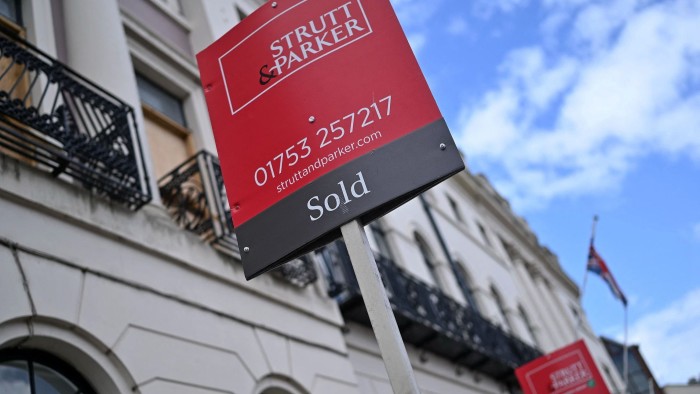Unlock the Editor’s Digest for free
Roula Khalaf, Editor of the FT, selects her favourite stories in this weekly newsletter.
UK mortgage approvals rose for the first time this year in May, defying expectations and pointing to a recovery in the housing market after the end of the stamp duty holiday.
Net mortgage approvals for house purchases increased by 2,400 to 63,000, the first increase since December 2024, the Bank of England said on Monday.
Economists polled by Reuters had expected a decline in approvals to 59,750.
Approvals for remortgaging also increased by 6,200 to 41,500 in May, the largest increase since February 2024.
The data points to an improving housing market, even though stamp duty thresholds reverted to pre-2022 levels on April 1, increasing costs for many property buyers.
First-time buyers, for example, started paying the levy for properties worth £300,000 or more, instead of the previous threshold of £425,000.

Separate official data published earlier in the month showed that UK house prices declined at their fastest monthly pace in nearly four years in April.
Stephanie Daley, director of partnerships at mortgage adviser Alexander Hall, said: “The market has bounced back now that the uncertainty of the recent stamp duty deadline has passed.”
With interest rates showing greater stability and many lenders continuing to offer a competitive range of sub-4 per cent mortgages, “conditions remain supportive for both first-time buyers and home movers”, she added.
The BoE data also showed that the “effective” interest rate — the actual interest paid — on newly drawn mortgages decreased to 4.47 per cent in May from 4.49 per cent in April, and the lowest since April 2023.
However, the rate on the outstanding stock of mortgages increased slightly, to 3.87 per cent, the highest since 2009, highlighting the cumulative impact of increases in interest rates since the Bank of England started raising borrowing costs in 2021.
Markets are pricing a 72 per cent probability that the BoE will cut interest rates by a quarter point from the current 4.25 per cent at the next meeting on August 7. That would be the fifth decline in borrowing costs since last summer as inflation fell from the multi-decade high reached in October 2022.
Pete Mugleston, managing director at Online Mortgage Advisor, said a rate cut could lead to more people buying property, “which would be a sorely needed boost to the economy”.
BoE consumer credit data also showed that net borrowing by individuals decreased to £859mn in May, from £1.9bn in the previous month and the lowest since April 2024.
Ashley Webb, economist at the consultancy Capital Economics, the figure suggests that the sharp 2.7 per cent decline in retail sales between April and May, reported earlier in the month by the Office for National Statistics, “wasn’t offset by stronger non-retail spending”. He added that this supported his view “that there is very little momentum in activity in Q2”.


